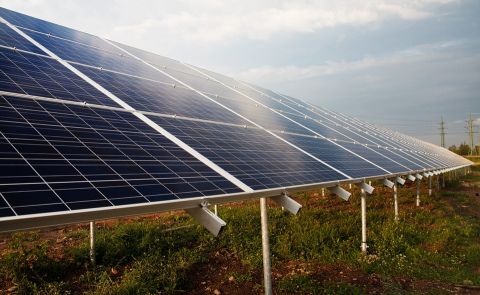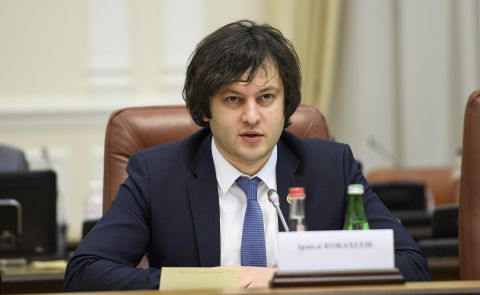
Georgia-Turkey Relations: Friendly or Problematic?
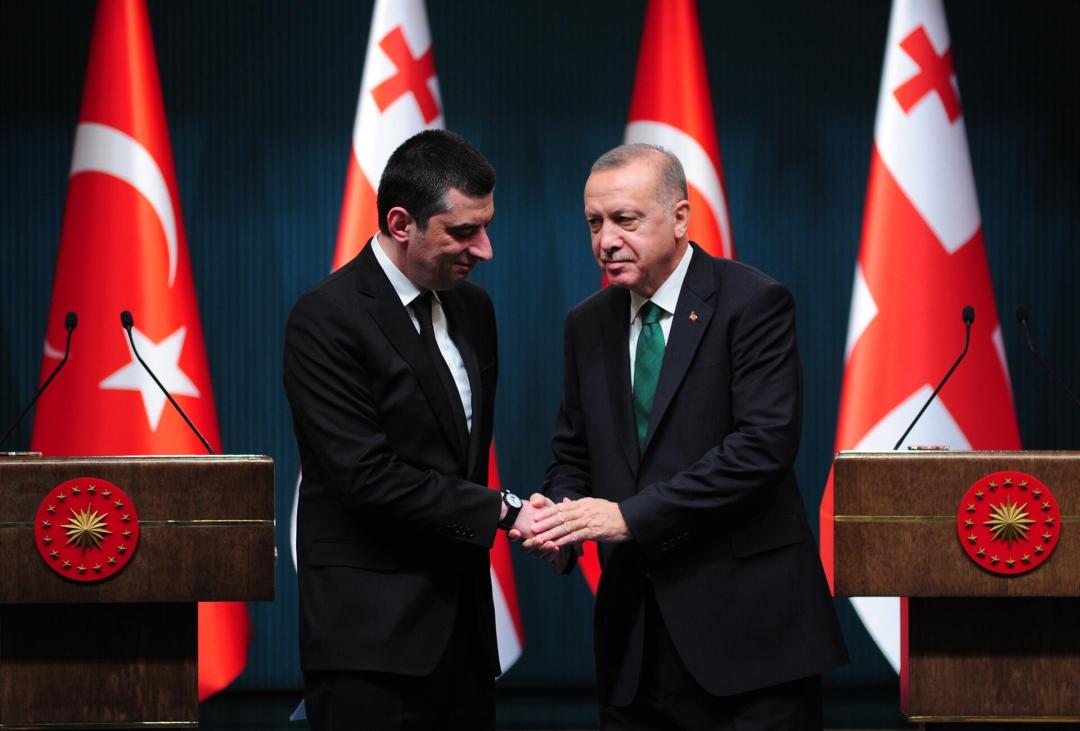
Trade and Economic Issues
Georgia and Turkey have enjoyed a relationship of tolerance over the years, an understanding of each other’s interests and robust trade connections. In addition, both sides enjoy the economic benefits of mutual tourism and Georgian seasonal labourers work on the Turkish tea and hazelnut plantations. According to 2019 statistics, the number of Georgian guest workers is around 40,000. There is also a number of Georgians who work in Turkey illegally but their figure remains unknown.
In terms of economy and trade relations, Turkey was Georgia’s biggest trading partner in 2007 and remains one of the leading foreign investors. According to the website of the Turkish Cooperation and Coordination Agency (TIKA), TIKA renovated the Batumi Infectious Disease Hospital, increasing its capacity with donations from Turkey and re-opening the facility on November 22nd 2019. The hospital has now become the country's headquarters in the fight against the COVID-19 pandemic. According to the Turkish Ambassador to Georgia, Fatma Ceren Yazgan, “TIKA provided US$1.6 million.”
Turkey remains Georgia’s largest trading partner with trade amounting to $1.85 billion in 2019 and $1.24 billion between January and September 2020. As we can see, trade between Turkey and Georgia has declined as a result of the global COVID-19 pandemic. The continuing pandemic will have devastating results for the two countries’ economies and will deeply affect Georgian households in particular. Even the Georgians working on the Turkish tea and hazelnut plantations may be barred from working there or at least their number is likely to decline.
Baku-Tbilisi-Ankara: Trilateral Military Cooperation and more
It is, however, impossible to speak about bilateral cooperation between Tbilisi and Ankara without mentioning its crucial third partner, Baku. This a very important factor that is usually overlooked and includes a format of trilateral meetings of ministers of defence and chiefs of staff that was inaugurated in 2012 during a ministerial meeting in Trabzon, Turkey. Moreover, the three countries initiated new joint military exercises known as Caucasian Eagle back in June 2017, which took first place at the Vaziani military base near Tbilisi. A second round of exercises took place in Baku in September 2019.
Baku-Tbilisi-Ankara military cooperation is by and large focused on the security of regional energy pipelines that run from Azerbaijan through Georgia, near South Ossetia, and continue into eastern Turkey. In 2018, for instance, an exercise was conducted that was based on a scenario that involved a hypothetical attack on the Baku-Tbilisi-Ceyhan (BTC) oil pipeline.
Another important project that emphasises the importance of this trilateral cooperation refers to the Baku-Tbilisi-Kars railway that carries freight from China via its Belt and Road Initiative (BRI) to Central Asia, Azerbaijan and from there via Georgia and Turkey to Europe. Further, there is also the recent Trans-Anatolian Natural Gas Pipeline (TANAP) that was inaugurated in June 2018. On November 21st 2018, TANAP and the Trans-Adriatic Pipeline (TAP) were connected at the Turkish-Greek border. As a result of connecting these two pipelines, Azerbaijani natural gas from the Shah Deniz-2 field can be transported to Italy via Azerbaijan, Georgia, Turkey, Greece, Albania, and the Adriatic Sea.
Turkey as Georgia’s Supporter within NATO
Back in May 2015, Mevlut Cavusoglu, Turkey’s Foreign Minister, said: “We support NATO enlargement. Currently, there are four candidate countries: Montenegro, Bosnia and Herzegovina, Macedonia and Georgia. We want the 2016 NATO summit to offer [them] the option for enlargement.” Back in May 2018, Nurettin Canikli, Turkey’s Minister of Defence, said: “Turkey is still supporting Georgia’s NATO membership and integration into other Euro-Atlantic organisations.” Twenty months later, Cavusoglu again reiterated the position of Turkey regarding Georgia’s NATO membership.
Despite Cavusoglu’s statements at the World Economic Forum in Davos on January 23rd 2020, where he said that “I don’t understand why we have not invited Georgia or we have not activated the action plan for Georgia to become a member” and “Georgia needs us and we need an ally like Georgia. So we need enlargement and Georgia should be made a member,” and all rhetoric aside, very little has been done to bring Georgia into the Alliance and Turkey’s role in the process remains limited at best. Even though Turkey is a friend of Georgia, its role and place in NATO has been downgraded since the failed coup on July 15th 2016.
Therefore, Cavusoglu’s statements have not done much harm; but they have also not helped Georgia in its quest to become a member of NATO. Accordingly, reassurances coming from Turkey regarding Georgia’s potential membership in the Alliance should be taken with a pinch of salt, although they have sent a positive and much appreciated signal to Georgia. It is unknown whether or not Turkey has been able to successfully lobby other NATO members on behalf of Georgia. Fact is, however, that Georgia is not a NATO-member as of today. Besides rhetoric, Turkey cannot do much for Georgia in its proclaimed role as Georgia’s champion for NATO membership.
Turkish Military Assistance to Georgia
In more practical terms, Turkey remains the second largest provider of military assistance to Georgia among NATO countries right after the United States. According to Ambassador Yazgan: “The Military Financial Cooperation Agreement signed in December 2019, with which Turkey committed to grant $15 million for the capacity building of the Ministry of Defence of Georgia, has been the most recent result of that support.” The funds help to reform the country’s military logistics.
Although the aforementioned aspects of Georgia-Turkey relations are highly positive, the two countries may have difficulties ahead in the case of a clash between Turkey and Greece in the Eastern Mediterranean.
Potential Scenario
It should be repeatedly stressed that in the case of a military conflict breaking out between Turkey and Greece, a subsequent alignment between Turkey and Russia could come to fruition. In such a scenario, Russian could demand that Turkey recognises the independence of Abkhazia and South Ossetia. Georgia would then be unable to counter such a move and would only be able to convey its diplomatic displeasure. Turkey and Russia are well-aware of Georgia’s predicament and, as a result, pay little attention to Georgia’s worries. Although such an implicit position on the part of Turkey may irk Georgian officials, they are aware of their limitations and may be forced to accept the bitter pill. This scenario has not yet materialised but nevertheless should not be disregarded.
In conclusion, Turkish trade, economic issues and the country’s assistance to Georgia against fighting the COVID-19 pandemic are highly appreciated by the Georgian government. It should be stressed, however, that Georgia remains too dependent on Turkey and cannot offer much in return. However, this is the fate of a small country that needs every act of assistance that it can get whether or not such assistance has problematic aspects.
The trilateral military cooperation has strengthened the cooperation between top military commanders and the armed forces of the two countries. Pipeline security cooperation highlighted the importance of Georgia as a transit country and contributed to the understanding of the Georgian partners that support should be given to Georgia so that it can remain a stable and prosperous country as a link between Azerbaijan and Turkey. Surely, the successful construction of the Baku-Tbilisi-Kars railway has further cemented the already strong trilateral links.
As it was mentioned, despite Turkey’s efforts as a NATO member to bring Georgia into the Alliance, Turkish assistance alone was not and is not a guarantee of success. In addition, since July 2016 the impact on and the role of Turkey within NATO has been reduced. There are 29 additional members which are divided as to whether or not it is wise to bring Georgia into the Alliance. On the other hand, the financial assistance that Turkey provides to the Georgian Ministry of Defence is highly appreciated.
Yet, a potential future conflict between Turkey and Greece may have dire consequences for Georgia-Turkey relations. As a result, it would be wise and useful for Georgian officials to be prepared for such a scenario.
About author: Eugene Kogan is a defence and security expert based in Tbilisi, Georgia.
See Also

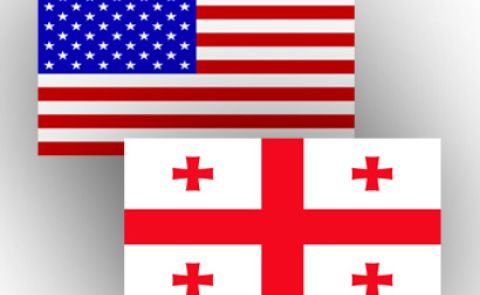
Kobakhidze Meets US Senator Daines to Discuss Bilateral Relations
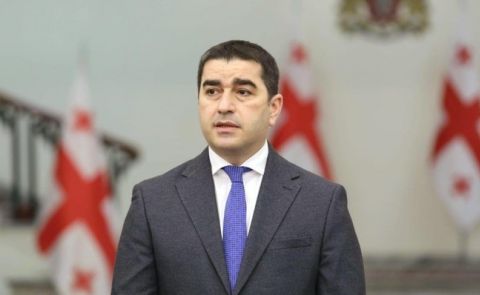
Georgian Speaker Condemns Embassy Travel Warnings as Economic Attack
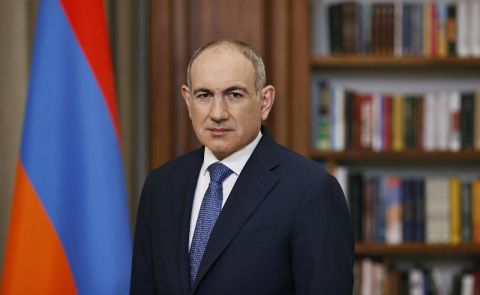
Political Crisis Deepens Between Armenian Government and Apostolic Church After Pashinyan’s Remarks
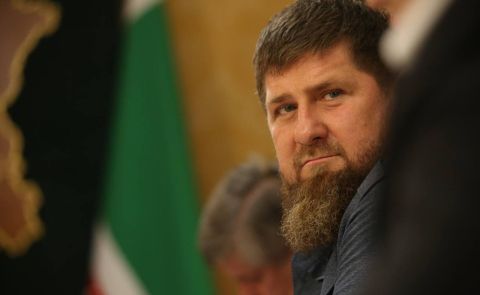
Ramzan Kadyrov Awards Title to Ingush Businessman
